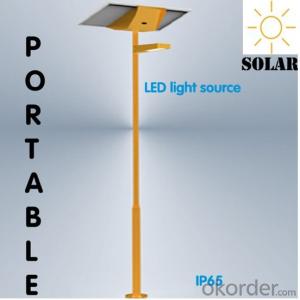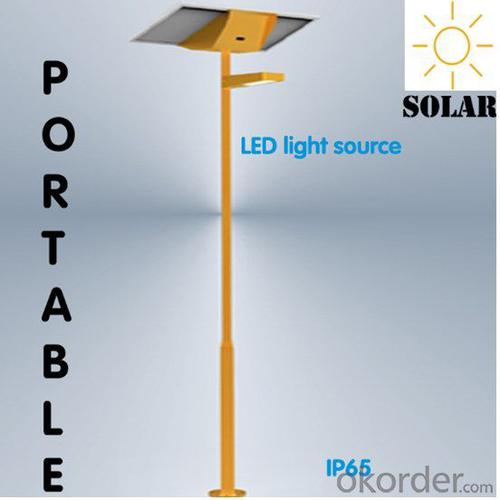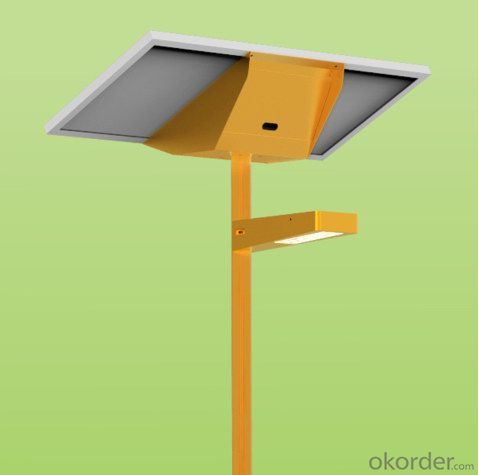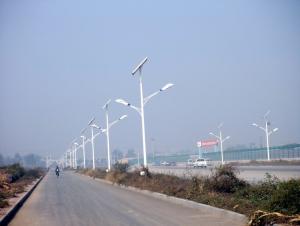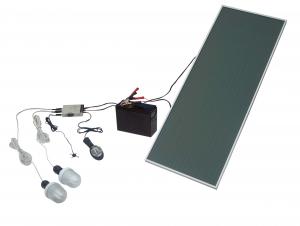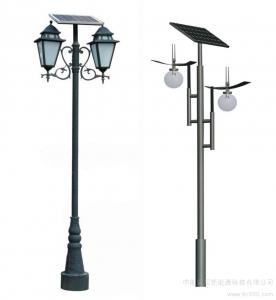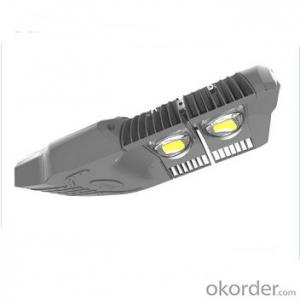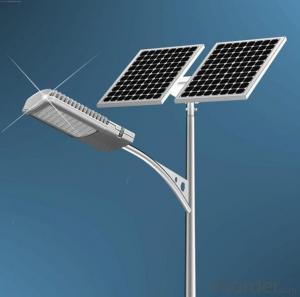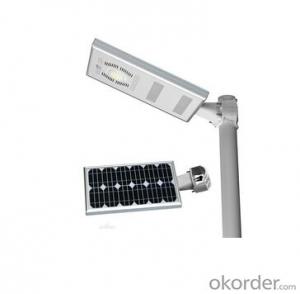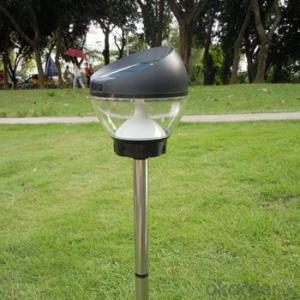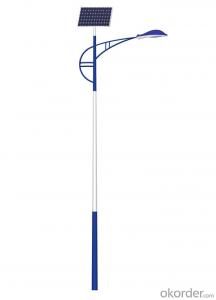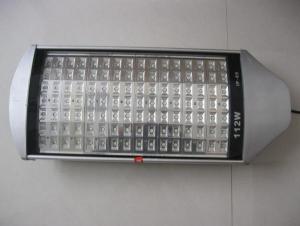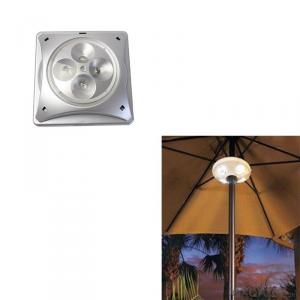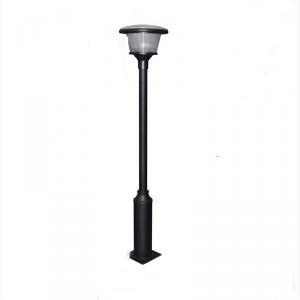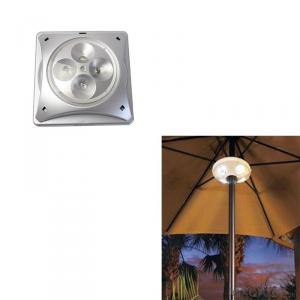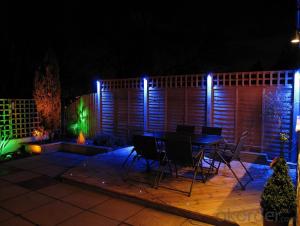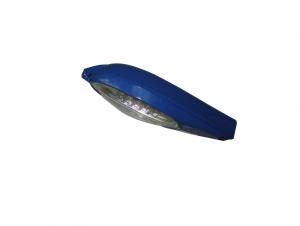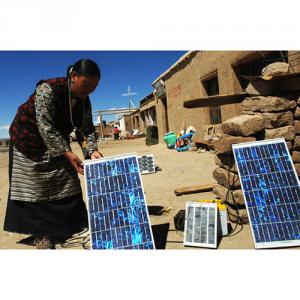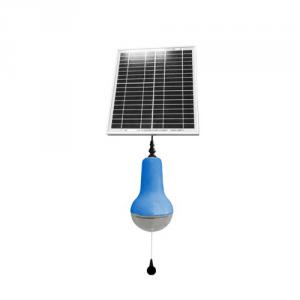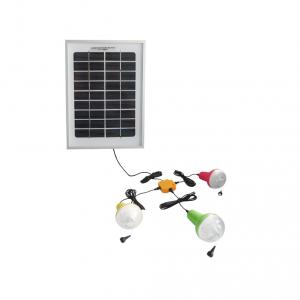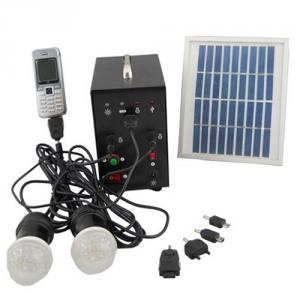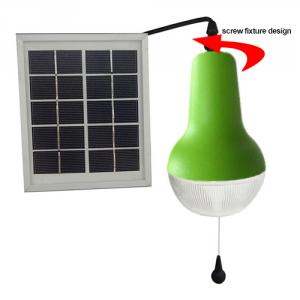8W LED Solar Light for Patio Umbrella, IP65, 3 Years Guarantee
- Loading Port:
- China main port
- Payment Terms:
- TT OR LC
- Min Order Qty:
- 10 PCS
- Supply Capability:
- 1000 PCS/month
OKorder Service Pledge
OKorder Financial Service
You Might Also Like
Basic Info
Model NO.: ZK-GTY-D313/008
Light Source: LED Light
Color Temperature(CCT): Cool White
Lamp Body Material: Aluminum Alloy
Lamp Power: 8W
Power Supply: Solar
Application: Square, Garden
IP Rating: IP65
Certification: CE, ISO
Product Description
3M Portable LED solar light. Easy to assemble,disassemble, carry, install and maintain.Energy conserving and eco-friendly, used Lithium iron battery, long life, 3years guarrantee.IP65.Can be used as solar street light, solar garden lamp, solar lighting for yards, greened communities, parks and squares, industrial zones and plants, landscape points, village roads, village yards etc.
Name: | Portable solar steet light |
Model: | ZK-GTY-D313/008 |
Power source power: | 8W |
Voltage: | 12V |
Photovoltaic module capacity: | 20Wp |
Battery capacity: | 15Ah |
Lamp pole height: | 3m |
Illumination requirement: | LED luminous efficiency more than 90LM/W |
Operation duration: | 6h/day |
Classification of wind resistance: | Class 8 |
Battery backup volume | 5 days of illumination in cloudy and rainy conditions can be ensured if the battery is fully charged |
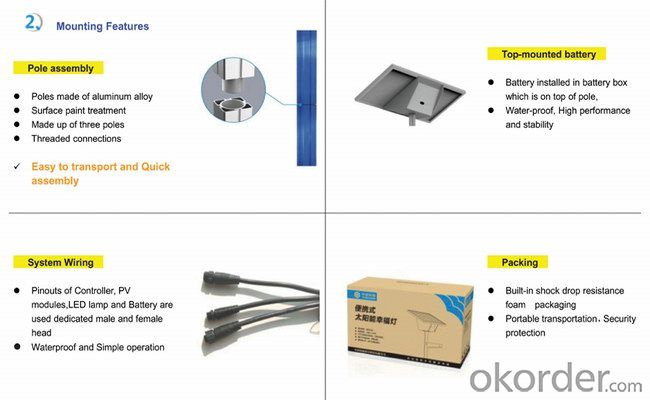
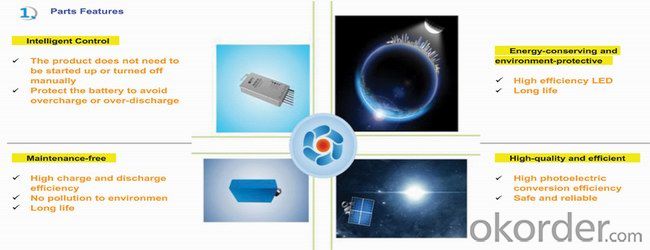
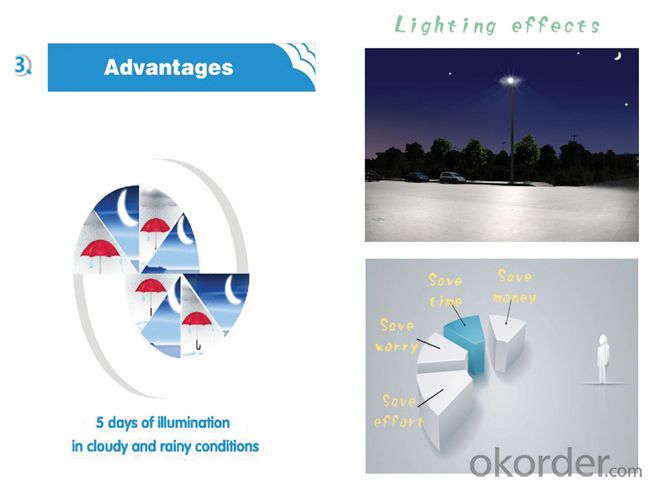
- Q: Do solar lights have adjustable brightness based on ambient light conditions?
- Yes, many solar lights have adjustable brightness based on ambient light conditions. These lights are equipped with a light sensor that automatically detects the level of natural light available and adjusts the brightness accordingly. During the day, when there is ample sunlight, the solar lights will typically remain off or emit a low level of light. As the evening approaches and the ambient light decreases, the lights will automatically increase their brightness to provide adequate illumination. This feature helps conserve energy by ensuring that the lights only operate at their full brightness when needed. Additionally, some solar lights may also offer manual adjustment options, allowing users to customize the brightness settings to their preference.
- Q: Can solar lights be used on rooftops or balconies?
- Yes, solar lights can be used on rooftops or balconies. They are designed to be easily installed and operated in outdoor environments, making them a practical and energy-efficient lighting solution for these areas.
- Q: Are solar lights suitable for lighting up large areas?
- Large areas are generally not suitable for lighting up with solar lights. While these lights can effectively illuminate small areas like pathways, gardens, or driveways, they are not designed to offer the same level of brightness and coverage as traditional electric lights. Solar lights depend on sunlight to charge their batteries, and their power output is limited by the size and efficiency of their solar panels. Consequently, they may not generate enough light to adequately illuminate larger spaces. Moreover, solar lights typically have a shorter run time compared to electric lights, especially on cloudy or rainy days, further decreasing their suitability for large areas. Therefore, if you need extensive lighting for a large area, it is recommended to consider other lighting options such as electric lights, which can provide the necessary brightness and coverage.
- Q: Can solar lights be used for indoor plants?
- Yes, solar lights can be used for indoor plants. However, they may not be as effective as traditional grow lights specifically designed for indoor plant cultivation. Solar lights rely on sunlight to recharge their batteries, so they may not provide sufficient light intensity or the right spectrum of light required for optimal plant growth. It is recommended to use grow lights specifically designed for indoor plants to ensure their healthy development.
- Q: Are solar lights easy to assemble?
- Yes, solar lights are generally easy to assemble. They usually come with clear instructions and have simple components that can be easily connected and set up.
- Q: Can solar lights be used for boat or marine lighting?
- Yes, solar lights can be used for boat or marine lighting. Solar lights are a practical and energy-efficient option for illuminating boats or marine areas, as they do not require any electrical wiring or power source. They can easily be installed on boats or docks, providing reliable lighting during nighttime navigation or for enhancing the aesthetics of the vessel. Additionally, solar lights are waterproof and durable, making them suitable for marine environments where exposure to water, salt, and harsh weather conditions is common.
- Q: Are solar lights resistant to theft and vandalism?
- Solar lights are generally resistant to theft and vandalism due to their wireless nature and lack of valuable components. However, they are not completely immune to such acts, and certain precautions like proper installation and security measures can further enhance their resistance.
- Q: Can solar lights be used for remote monitoring or surveillance?
- Yes, solar lights can be used for remote monitoring or surveillance by integrating them with motion sensors and cameras. This setup allows for continuous monitoring of a specific area, even in remote locations, without the need for a direct power source. The solar panel provides the necessary energy to power the lights, motion sensors, and cameras, making them an ideal solution for surveillance purposes in off-grid or remote areas.
- Q: Do solar lights have adjustable settings for different lighting needs?
- Solar lights typically offer adjustable settings to meet different lighting needs. They often come with adjustable brightness levels, giving users the option to select low, medium, or high intensity of light. This is especially beneficial for areas that require either a softer or brighter light, like pathways, gardens, or for security purposes. Furthermore, certain solar lights also provide adjustable settings for lighting durations. Users can set the lights to remain on for a specific duration, such as 4 hours, 6 hours, or throughout the entire night. This adaptability in settings guarantees that solar lights can be personalized to satisfy diverse lighting requirements and preferences.
- Q: Are solar lights resistant to damage from wildlife?
- Solar lights are generally designed to be resistant to damage from wildlife. However, this can vary depending on the specific brand and model of the solar light. Some solar lights may be more durable and built with protective features to withstand potential damage caused by wildlife, while others may be more vulnerable. It is always advisable to check the product specifications or consult with the manufacturer to determine the level of wildlife resistance for a particular solar light.
Send your message to us
8W LED Solar Light for Patio Umbrella, IP65, 3 Years Guarantee
- Loading Port:
- China main port
- Payment Terms:
- TT OR LC
- Min Order Qty:
- 10 PCS
- Supply Capability:
- 1000 PCS/month
OKorder Service Pledge
OKorder Financial Service
Similar products
Hot products
Hot Searches
Related keywords
